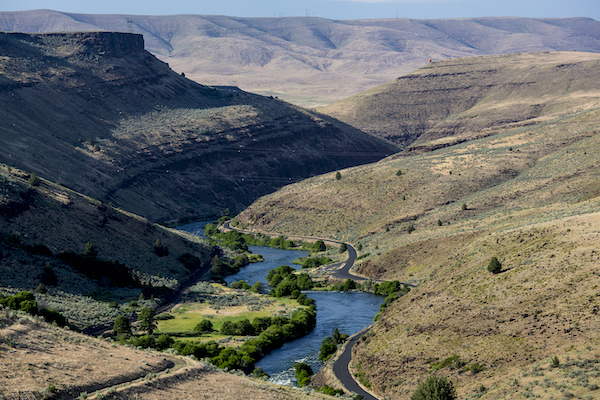ODFW Surveying Columbia, Tribs Steelheaders On Fishery Management
THE FOLLOWING IS A PRESS RELEASE FROM THE OREGON DEPARTMENT OF FISH AND WILDLIFE
Returns of summer steelhead to areas above Bonneville Dam hit a record low in 2021, closing the Deschutes River to steelhead fishing for the first time since 1978 and impacting fisheries throughout the mainstem and tributaries.

With another low run forecast for 2022, ODFW is seeking to engage anglers and other stakeholders on potential fishery management actions this year and into the future. The goal is to provide greater transparency on what management actions will be taken when steelhead runs are low so anglers, guides and local communities understand the decision framework and can be more prepared for likely fishery restrictions.
As a first step, ODFW is asking anglers and other stakeholders to complete a listening survey by April 11. The survey is being conducted by Oregon State University Cooperative Fish and Wildlife Research Unit; find it at https://oregonstate.qualtrics.com/jfe/form/SV_bJYqhcM8W5y1Ne6
On April 19 at 6 p.m., ODFW fish biologists throughout the Columbia Basin will present a webinar to discuss summer steelhead management, what was learned from the survey, decision frameworks for fishery restrictions and more. This webinar will be livestreamed over ODFW’s YouTube channel and include a Q&A session where fisheries biologists will answer questions submitted during the livestream.
“We want to better understand the perspectives and concerns of those who are interested in the management of summer steelhead in the Columbia River and its tributaries including the Deschutes, John Day, Walla Walla, Umatilla, Imnaha and Grande Ronde Rivers,” said Shaun Clements, ODFW assistant fish division administrator. “So we really appreciate everyone interested in this issue taking the time to complete the survey.”
“Our first priority is always conservation, and unfortunately upriver summer steelhead runs have been on a downturn since 2017,” he continued. “Greater transparency about management actions that may be taken during low runs will help communities impacted by closures prepare and understand when management actions will be taken and why.”
While permanent regulations for these fisheries could change in the future, the decision frameworks initially will be used to make in-season regulation changes (e.g. temporary rules).
This public process is in addition to the normal process for mainstem Columbia River fisheries and the annual Sport Fishing Regulations process.
For more background on steelhead management in the Columbia River Basin and to sign up for updates, please visit https://myodfw.com/articles/steelhead-management-columbia-snake-river-basins
While the survey is designed to capture public comments on this issue, questions about steelhead management in the Columbia Basin including the tributaries can be emailed to odfw.steelhead@odfw.oregon.gov
